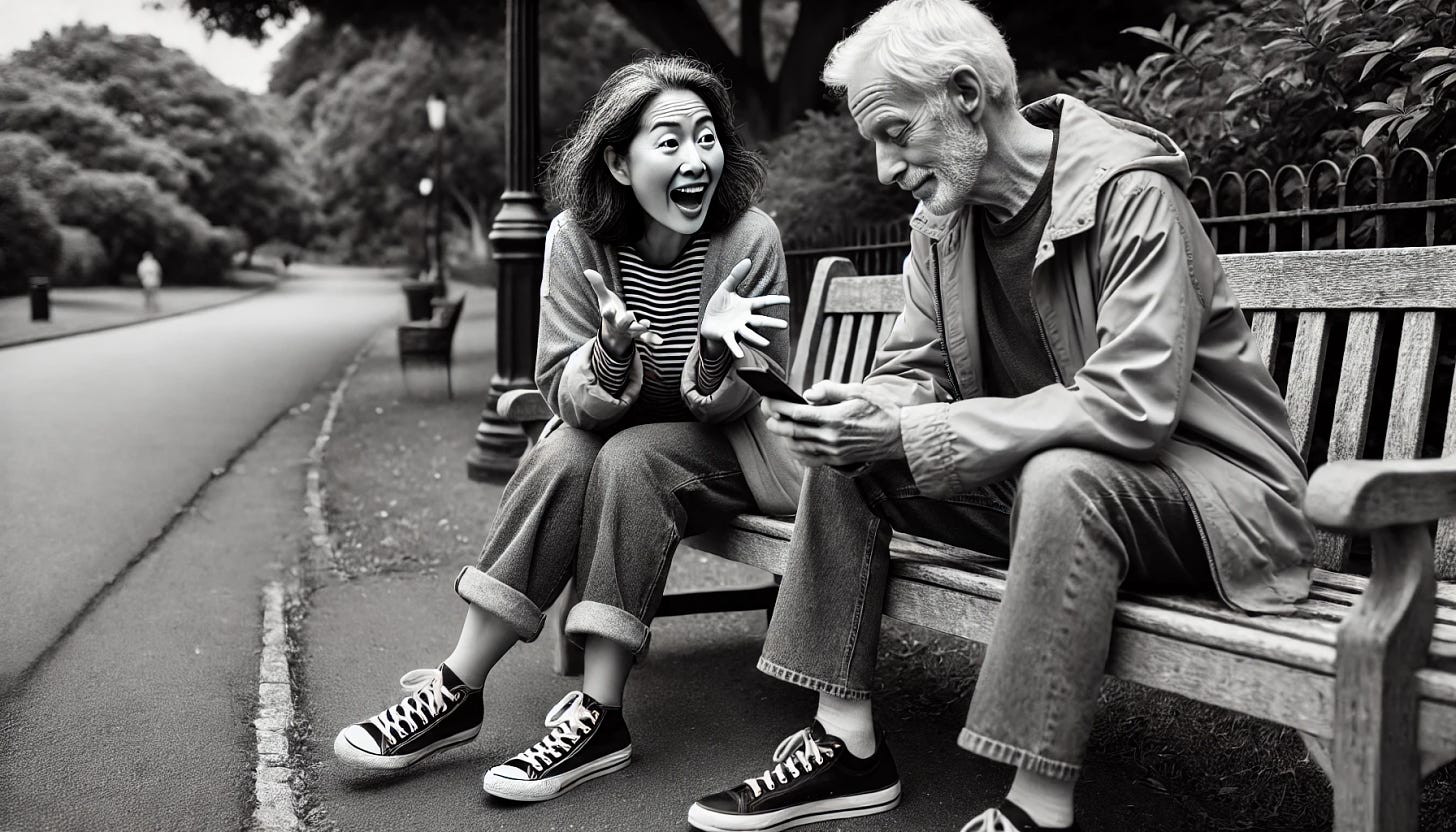“I don’t feel lonely when I’m alone,” I said to a friend. “I feel lonely when he is half-listening.”
This form of loneliness isn’t born from solitude but from half-hearted engagements. It’s a common frustration in relationships, where genuine connections give way to distracted attention. We all yearn for moments where we feel truly heard and seen.
Listening with a quiet heart demonstrates that others matter. Yet, many of us have felt the emptiness of speaking to someone who is only partially there—a slight nod here, a distracted "uh-huh" there, followed by “What did you say again? or “I missed it, what were you saying?”
It often feels like there's an invisible barrier, whether it's a mind preoccupied with other matters or the intrusion of devices. When personal thoughts are shared, we need a dialogue, not just a passive reception. Dialogue isn’t simply about conveying information; it's a collaborative, relational exchange that demands engagement.
Consider the impact of these half-hearted interactions on our loved ones: a spouse quietly resigning themselves to being unheard, a child accepting that their stories receive only a fraction of our attention, a friend slowly withdrawing from a bond they feel weakening. These seemingly minor, overlooked moments damage trust and intimacy, slowly unraveling relationships we've worked to build over time.
But this post isn’t just a critique of a digital distraction or a lesson on listening. And my words aren’t meant to cast blame or instill guilt. This is an invitation to reflect on when NOT to listen. Respecting both ourselves and others means honestly acknowledging when we can’t fully engage, yet committing to do so when we can offer our undivided attention.
There are moments where delaying a conversation for deeper engagement is better than proceeding with shallow connection. It’s not rejection, but a deep respect for the gravity of their words and the quality of our interactions.
However, recognizing these moments shouldn’t become an excuse to indefinitely postpone meaningful conversations. Conflicts require resolution, problems demand attention, and our loved ones deserve to share their thoughts and feelings. In moments where life’s urgencies or emotional capacities make full engagement difficult, it’s wiser to honestly communicate our inability to be fully present.
Recognising these moments and knowing how to gracefully communicate our inability to be fully present is an art—one that can deepen rather than diminish our relationships.
If we can't pay attention, we can't truly hear. Without hearing, we can't respond or follow up. Lack of responsiveness becomes a barrier to connection in close relationships.
That’s why we need the courage, humility, and compassion to say:
“I can’t do this right now because I’m struggling to focus. Can we revisit this conversation another time?”
“I need to finish something important. I don’t think I can fully concentrate on what you’re saying when my mind is elsewhere. Shall we do this later?”
“What you’re saying seems important, but I need some time to calm down first; I’ve had a bad meeting.”
“I really want to hear what you’re saying, but I’m not able to concentrate at the moment.”
"I really want to hear about your day, but I'm preoccupied with work right now. Can we please talk after dinner?”
“This conversation is very important, but my mind is not here. Can we reschedule?”
“I can see you’re upset and I want to help, but right now I’m helping your brothers. Can we talk in an hour? I want to give you my full attention."
These responses are not about pushing someone away; they are about valuing their message enough listen fully.
There is wisdom in knowing that not every moment is the right moment.
This commitment is a promise that when we do engage, it will be meaningful and undivided. It’s a recognition that we all deserve to be heard with a quiet heart.
Listening, truly listening, is an offering of the heart, a gift that says, "You are important to me; what you have to say matters."
And when delivered with love, a graceful decline means, "I care deeply about you, and I want to give you my full self, not just a distracted piece of me."




